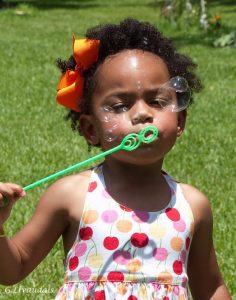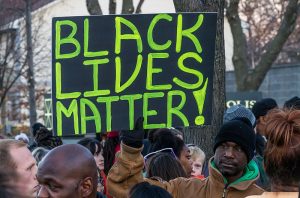We Need More Than Equality
 Over the past few months, I’ve tried to wrap my brain around the multitude of complex issues that have occurred between police officers and people of color within the United States. From my recollection, it seemed like every other day there was a new incident involving an unarmed black man being gunned down by individuals who are sworn to protect the public: the police. Whenever the news of these incidents were revealed to the public, I noticed friends, family, and strangers all begin to take sides as to who they believed was either right or wrong in this situation (involving the police and the individual who was shot). Through social media and conversations with peers, I’ve observed people pick “sides,” such as, “Blue Lives Matter,” “Black Lives Matter,” or “All Lives Matter.” When I observed people use these phrases to justify their stance on life (and which lives matter), I began to establish my own thoughts about how we as a society ought to view life from a metaphysical standpoint. Within this essay, I will first illustrate the significance of the fact that humans are social beings. Second, I will illustrate the importance of sympathy and empathy for social beings like humans. Third, I will argue that human life is precious and that it ought to be appreciated and celebrated uniformly with all human life.
Over the past few months, I’ve tried to wrap my brain around the multitude of complex issues that have occurred between police officers and people of color within the United States. From my recollection, it seemed like every other day there was a new incident involving an unarmed black man being gunned down by individuals who are sworn to protect the public: the police. Whenever the news of these incidents were revealed to the public, I noticed friends, family, and strangers all begin to take sides as to who they believed was either right or wrong in this situation (involving the police and the individual who was shot). Through social media and conversations with peers, I’ve observed people pick “sides,” such as, “Blue Lives Matter,” “Black Lives Matter,” or “All Lives Matter.” When I observed people use these phrases to justify their stance on life (and which lives matter), I began to establish my own thoughts about how we as a society ought to view life from a metaphysical standpoint. Within this essay, I will first illustrate the significance of the fact that humans are social beings. Second, I will illustrate the importance of sympathy and empathy for social beings like humans. Third, I will argue that human life is precious and that it ought to be appreciated and celebrated uniformly with all human life.
Humans are social beings. We are dependent upon our experiences within the world and with other human beings. Our experiences are important because they help shape our ideas and beliefs; they also allow for us to understand our surroundings as well as other people. For instance, you could not place a new born baby in a room by itself for its entire life and expect it to develop into a human being who can properly rationalize and truly understand what is going on around it. We need other human beings in order to thrive and live. As social beings who learn from experience, hopefully in some capacity during our lifetime, we learn to develop sympathy and empathy. The hope is that we are given the opportunity to have enough experiences in order to indirectly or directly relate to another human being. I’m sure you’ve heard the old phrase: “We fear what we do not know.” A majority of the time, that statement is true because we often don’t fear the things we thoroughly understand (with some exceptions of course). When we fail to sympathize or empathize with another individual who has/had different experiences than us, we occasionally resort to stereotypes and make assumptions. We can learn so much from other people when we listen, rather than immediately resorting to various preconceived notions. Sympathy and empathy wouldn’t be important if we were not the social beings that we are. We rely on others to live and, arguably, could not survive without other human beings.

